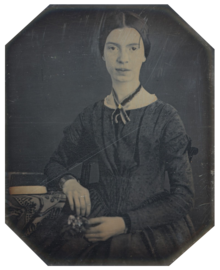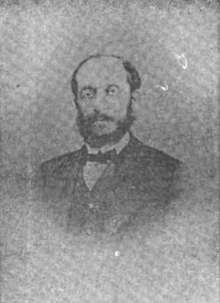Portal:Literature
Introduction

Literature is any collection of written work, but it is also used more narrowly for writings specifically considered to be an art form, especially novels, plays, and poems. It includes both print and digital writing. In recent centuries, the definition has expanded to include oral literature, much of which has been transcribed. Literature is a method of recording, preserving, and transmitting knowledge and entertainment. It can also have a social, psychological, spiritual, or political role.
Literary criticism is one of the oldest academic disciplines, and is concerned with the literary merit or intellectual significance of specific texts. The study of books and other texts as artifacts or traditions is instead encompassed by textual criticism or the history of the book. "Literature", as an art form, is sometimes used synonymously with literary fiction, fiction written with the goal of artistic merit, but can also include works in various non-fiction genres, such as biography, diaries, memoirs, letters, and essays. Within this broader definition, literature includes non-fictional books, articles, or other written information on a particular subject. (Full article...)
General images -
El Señor Presidente (Mister President) is a 1946 novel written in Spanish by Nobel Prize–winning Guatemalan writer and diplomat Miguel Ángel Asturias (1899–1974). A landmark text in Latin American literature, El Señor Presidente explores the nature of political dictatorship and its effects on society. Asturias makes early use of a literary technique now known as magic realism. One of the most notable works of the dictator novel genre, El Señor Presidente developed from an earlier Asturias short story, written to protest social injustice in the aftermath of a devastating earthquake in the author's home town.
Although El Señor Presidente does not explicitly identify its setting as early twentieth-century Guatemala, the novel's title character was inspired by the 1898–1920 presidency of Manuel Estrada Cabrera. Asturias began writing the novel in the 1920s and finished it in 1933, but the strict censorship policies of Guatemalan dictatorial governments delayed its publication for thirteen years.
On its eventual publication in Mexico in 1946, El Señor Presidente quickly met with critical acclaim. In 1967, Asturias received the Nobel Prize in Literature for his entire body of work. This international acknowledgment was celebrated throughout Latin America, where it was seen as a recognition of the region's literature as a whole.
Selected excerpt
| “ | It is a curious subject of observation and inquiry, whether hatred and love be not the same thing at bottom. Each, in its utmost development, supposes a high degree of intimacy and heart-knowledge; each renders one individual dependent for the food of his affections and spiritual life upon another; each leaves the passionate lover, or the no less passionate hater, forlorn and desolate by the withdrawal of his object. Philosophically considered, therefore, the two passions seem essentially the same, except that one happens to be seen in a celestial radiance, and the other in a dusky and lurid glow. | ” |
| — Nathaniel Hawthorne, The Scarlet Letter | ||
More Did you know
- ... that John Donne's Devotions upon Emergent Occasions is one of only seven printed works he acknowledged authorship of?
- ... that Amir Hamzah left one of his fifty poems in his prison cell before being executed?
- ... that the Hongwu Emperor was so fond of Gao Ming's play The Lute that he ordered it to be performed every day at court?
- ... that both the Star Trek novels The Tears of the Singers and Uhura's Song included Uhura as a main character as the authors thought she was underdeveloped in the show?
- ... that author Colum McCann described the subject of his 2003 novel Dancer, Rudolf Nureyev, as "a monster"?
Selected illustration
Did you know (auto-generated) -

- ... that Polish Renaissance poet Jan Kochanowski – considered "the founding father of Polish literature" – wrote threnodies, the first Polish-language tragedy, and epigrams?
- ... that 19th-century Polish ethnographer Zorian Dołęga-Chodakowski travelled the countryside as a "wild man" and later appeared as a literary character?
- ... that Cathie Dunsford was unable to find many books about lesbianism in the 1970s, but by the 1980s had herself become a writer and anthologist of lesbian literature?
- ... that Hammersmith by Gustav Holst was acclaimed by Frederick Fennell for having "some of the most treacherous stretches of music making" in band literature?
- ... that Emelia Quinn argues that "monstrous vegans" have recurred in literature since Mary Shelley's Frankenstein?
- ... that Imagining Mars: A Literary History "presents a compelling case that 'Mars matters'"?
Today in literature
- 1865 - Mark Twain's story The Celebrated Jumping Frog of Calaveras County is published in the New York Saturday Press.
- 1874 - Clarence Day, American author born
- 1889 - William Allingham, Irish author died
- 1906 - Klaus Mann, German writer born
- 1922 - Marcel Proust, French novelist died
- 1926 - George Bernard Shaw refuses to accept the money for his Nobel Prize, saying, "I can forgive Alfred Nobel for inventing dynamite, but only a fiend in human form could have invented the Nobel Prize."
- 1939 - Margaret Atwood, Canadian writer (Surfacing, The Handmaid's Tale) born
- 1941 - Émile Nelligan, Quebec poet died
- 1946 - Alan Dean Foster, American author born
- 1952 - Paul Eluard, French poet died
- 1957 - Seán Mac Falls, Irish-born poet born
- 1966 - Jorge Camacho, Spanish poet born
- 1985 - Calvin and Hobbes, a comic strip by Bill Watterson, is first published.
- 1999 - Paul Bowles, American novelist died
Topics
| Literature: | History of literature · History of the book · Literary criticism · Literary theory · Publishing |
| By genre: | Biography · Comedy · Drama · Epic · Erotic · Fable · Fantasy · Historical fiction · Horror · Mystery · Narrative nonfiction · Nonsense · Lyric · Mythopoeia · Poetry · Romance · Satire · Science fiction · Tragedy · Tragicomedy · more... |
| By region: | African literature · Asian · European · Latin American · North American · Oceanic |
| By era: | Ancient literature · Early medieval · Medieval · Renaissance · Early Modern · Modern |
| By century: | 10th century in literature · 11th · 12th · 13th · 14th · 15th · 16th · 17th · 18th · 19th · 20th · 21st |
| Recent: | 2018 in literature· 2017 · 2016 · 2015 · 2014 · 2013 · 2012 · 2011 · 2010 · 2009 · 2008 · 2007 · more... |
Categories
Related portals
| Concepts: | |
| Genres: | |
| Religions: |
Things you can do
Related WikiProjects
WikiProjects related to literature:
| Concepts: | Biographies · Books · Comics · Magazines · Manga · Novels · Poetry · Short stories · Translation studies |
| Genres: | Alternate history · Children's literature · Crime · Fantasy · Horror · Mythology · Romance · Science fiction |
| Authors: | Honoré de Balzac · Roald Dahl · William Shakespeare |
| Series: | Artemis Fowl · Chronicles of Narnia · Discworld · Harry Potter · His Dark Materials · Hitchhiker's Guide to the Galaxy · Inheritance Cycle · James Bond · King Arthur · Middle-earth · Percy Jackson · Redwall · A Series of Unfortunate Events · Shannara · Sherlock Holmes · A Song of Ice and Fire · Star Wars · Sword of Truth · Twilight · Warriors · Water Margin · Wizard of Oz |
| Regions: | Australian literature · Indian literature · Persian literature |
Associated Wikimedia
The following Wikimedia Foundation sister projects provide more on this subject:
-
Commons
Free media repository -
Wikibooks
Free textbooks and manuals -
Wikidata
Free knowledge base -
Wikinews
Free-content news -
Wikiquote
Collection of quotations -
Wikisource
Free-content library -
Wikiversity
Free learning tools -
Wiktionary
Dictionary and thesaurus









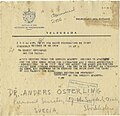
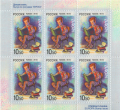

















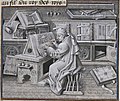





















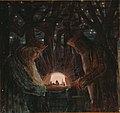


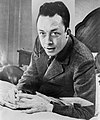






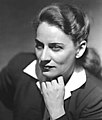













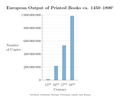



![Image 1 Mario Vargas Llosa in 2016 Jorge Mario Pedro Vargas Llosa, 1st Marquess of Vargas Llosa (born 28 March 1936), more commonly known as Mario Vargas Llosa (/ˌvɑːrɡəs ˈjoʊsə/; Spanish: [ˈmaɾjo ˈβaɾɣas ˈʎosa]), is a Peruvian novelist, journalist, essayist and former politician. Vargas Llosa is one of Latin America's most significant novelists and essayists and one of the leading writers of his generation. Some critics consider him to have had a larger international impact and worldwide audience than any other writer of the Latin American Boom. In 2010, he won the Nobel Prize in Literature, "for his cartography of structures of power and his trenchant images of the individual's resistance, revolt, and defeat." He also won the 1967 Rómulo Gallegos Prize, the 1986 Prince of Asturias Award, the 1994 Miguel de Cervantes Prize, the 1995 Jerusalem Prize, the 2012 Carlos Fuentes International Prize, and the 2018 Pablo Neruda Order of Artistic and Cultural Merit. In 2021, he was elected to the Académie française. Vargas Llosa rose to international fame in the 1960s with novels such as The Time of the Hero (La ciudad y los perros, literally The City and the Dogs, 1963/1966), The Green House (La casa verde, 1965/1968), and the monumental Conversation in The Cathedral (Conversación en La Catedral, 1969/1975). He writes, prolifically, across an array of literary genres, including literary criticism and journalism. His novels include comedies, murder mysteries, historical novels, and political thrillers. Several, such as Captain Pantoja and the Special Service (1973/1978) and Aunt Julia and the Scriptwriter (1977/1982), have been adapted as feature films. (Full article...)](http://upload.wikimedia.org/wikipedia/en/d/d2/Blank.png)




